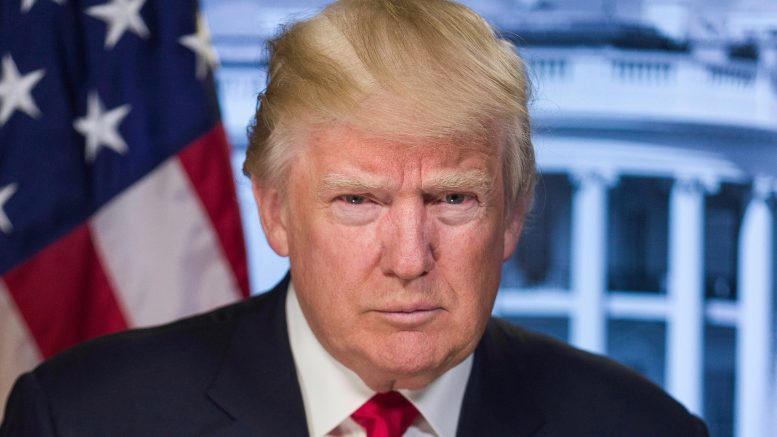UCLA’s Cara Horowitz says Trump will act quickly to gut Biden’s climate agenda but states like California can slow the damage
By Audrey Carleton, Capital & Main
This story is produced by the award-winning journalism nonprofit Capital & Main and co-published here with permission.
Heading into election night, UCLA professor Cara Horowitz felt like she was experiencing déjà vu.
The executive director of the Emmett Institute on Climate Change and the Environment at the UCLA School of Law said she and others in the climate space knew going into the evening that the presidential race was “on a knife’s edge.” Memories of the 2016 presidential election were visceral as the night wore on and the results rolled in.
For as uncertain as the election outcome was, its implications for the climate were even more so. On one hand, Vice President Kamala Harris came to her campaign with a relatively strong environmental record — including casting the tie-breaking vote on one of the most consequential pieces of climate legislation in the nation’s history — and vowed in her platform to “lower energy costs and tackle the climate crisis.” On the other side, former President Donald Trump promised deregulation across the board while proudly espousing the mantra “Drill, baby drill!” The clashing views came after a summer of natural disasters, at a time when scientists are urging drastic action to avert the worst consequences of climate change.
So, Horowitz, like many climate voters, was dismayed to watch Trump ascend to a second term. And, in the days after, ahead of Horowitz’s trip to the annual U.N. climate summit in Baku, Azerbaijan, Capital & Main caught up with her to discuss what she envisions for climate action over the next four years. Though a climate denier is soon to be at the helm of the federal government, she believes not all is lost.

This interview has been edited for clarity and brevity.
Question: President-elect Trump, and former advisers of his, have broadly vowed to dismantle the regulatory state. Right now, the climate world is scared. Which federal policies, programs and agencies do you think are first on the chopping block?
Cara Horowitz: I expect we’ll see the same sorts of patterns and conflicts emerge in the second Trump administration as we saw in the first Trump administration, but amplified, and they’re going to come faster and earlier than they did the first time around.
Trump has said that he will gut the staff of the Environmental Protection Agency, for example. I think we’ll see early efforts to implement that promise. I think the Inflation Reduction Act has a big target on its back, and that the Trump administration will try hard to claw back whatever it can of the incentives and tax breaks and other benefits that flow from the Inflation Reduction Act. I think it will be politically complicated for the Trump administration to try to do that because [of] the way that the IRA is often structured around efforts to promote clean energy and other technologies that we like, through incentives, through doling out cash to people, and so it’s actually hard to undo those sorts of incentives.
I think easier targets for Trump politically will include many environmental rules that the Biden administration put into place. Those rules that the Trump administration, I’m sure, will target include greenhouse gas emission rules that apply to coal-fired power plants that were put in place under Biden, and methane oil and gas emission rules.
At this point, it’s hard to know how much of this is rhetoric and how much of this is politically feasible. How easy would it be, for instance, for the Trump administration to roll back rules that the Biden administration has either finalized or is planning to finalize, like around heat in the workplace, or methane emissions from oil and gas?
One interesting thing about Trump’s deregulatory rules in the environmental space is that some of them are at cross purposes with each other. Trump has promised to defund EPA, to drain the swamp, to reduce the staff of federal agencies. And then Trump has also announced, on the other hand, a pretty robust deregulatory agenda, whereby he proposes to assess, repeal and replace a bunch of environmental protection rules that were put in place under Biden. Well, it turns out he may have to choose one of those promises or the other. Can he just sign an executive order that undoes the Biden regulatory work under the EPA to protect the environment? The answer is no, he largely can’t. The work of repealing and replacing environmental regulations takes a lot of personpower, a lot of labor and a lot of time. It requires competent staff at EPA and other agencies to examine rules, to create administrative records justifying the actions that they want to take. Those records are really fact-intensive, and have to be really well justified in order to be defended in court. And so, in order to accomplish the deregulatory agenda that Trump has set out, somewhat ironically, he would need federal agency staff.
And what about legislation, which are written and passed not by the executive branch, but by Congress?
A lot of the IRA’s core provisions and tax breaks are written into the statute itself, and therefore can only be undone with additional congressional action. That additional congressional action, or amendments, can only be passed if the Republicans in fact have control of the Senate and the House, and not just numerical control, but also enough discipline to hold their factions together to pass repeals. And, the question of passing repeals of tax breaks or tax incentives is politically thorny. So, even if the Republicans have numerical control of both the Senate and the House, I wonder whether they would be able to garner enough political support to undo the IRA’s tax breaks and tax incentives.
It turns out, tax breaks and tax incentives are popular across both political parties. And somewhat surprisingly, many of the jurisdictions that are best poised to take advantage of these IRA renewable energy tax incentives are in red states. So Texas, for example, is home to one of the nation’s most booming wind and renewable construction hubs.
Of course, provisions do have to be implemented by agencies. And, the Treasury Department and the Department of Energy and other agencies have been finalizing regulations to implement those provisions. Those regulations, I think, are more vulnerable than the underlying statutory provisions that authorize them, because the Trump administration can come in — and likely will come in — and direct agencies to reassess regulations that Trump doesn’t agree with. Again, that regulatory reassessment isn’t as easy as Trump signing a piece of paper.
What can climate-forward state legislatures and local governments be doing right now to make up for anticipated losses in the regulatory structure?
States and cities were incredibly important [during] the first Trump administration in keeping momentum alive for strong climate and environmental action, and in signaling to the world that the United States isn’t a monolith, and that progress continues to be made in important ways, even in the face of federal deregulation. And that was true in Trump 1.0; it will be even more true in Trump 2.0.
A host of states have made it very clear that they intend explicitly to oppose Trump’s deregulatory agenda, and they actually have an interesting set of tools to do that. In California, Gov. [Gavin] Newsom has already called a special session of the legislature to help the state prepare to oppose Trump’s agenda. California is going to fundAttorney General Rob Bonta’s office explicitly to bring litigation strategically opposed to Trump’s agenda. And I think litigation actually can help slow things down. One theory of what we should be doing over the next few yearsis just to slow things down until the midterms. Make things hard for two years, with the hope that with the midterm elections, the political dynamic may change a little bit. Also, I think Trump risks breaking the law [with his deregulation orders], and so states have an incredibly important role in ensuring that his administration is doing what Congress has told his administration to do in the statutes that Congress has enacted over the last 40 years.
Another bucket of what states can do is enact their own policies. States like New York and California and Pennsylvania and Washington comprise a big proportion of U.S. gross domestic product. And so what these states do to ensure that their economies are reducing emissions and getting closer to their net zero goals, it’s important not just within the boundaries of each state, but it’s important globally, and sets good examples for other jurisdictions looking to follow suit.
It’s also potentially easier for the everyday person, who might be bogged down by climate doom, to get involved in politics at the state or local level than at the federal level. What would your advice be for climate-conscious folks who are feeling overwhelmed by this moment?
It turns out a lot of the work of reducing emissions, and especially a lot of the work of adapting to climate change and making our communities more resilient, is really at the local and state level. It doesn’t happen at the federal level. So, policies around waste management and methane emissions are local or state policies. Policies about public transit or housing or housing density are local or state policies. Policies concerning how we use our land, land use more generally. All of these things are controlled at the state and local level — not federally. And so, if people want to spend their energy during the Trump administration focused more locally, getting their local politicians to plant more trees or create more climate resilience hubs so that their communities are more resilient in the face of disaster, or enact a cool roof ordinance so that our communities stay cooler and contribute less to climate emissions, or improve public transit options, so that folks can get out of their cars or create more bike lanes, I think that’s a great way to spend your time.
I think it’s important for folks to recognize that the federal government is important and to help oppose deregulatory agendas that they disagree with, but they shouldn’t lose sight of the many affirmative actions they could help push for in their communities. And that will have climate benefits; it also will have community-building benefits. It’s kind of fun to make the place where you live more climate resilient, and maybe you’ll get to know your neighbors and local politicians along the way.
So, there would be worse ways to spend the next few years.
Copyright Capital & Main 2024


Be the first to comment on "Yes, having a climate denier at the helm is alarming. But all Is not lost"